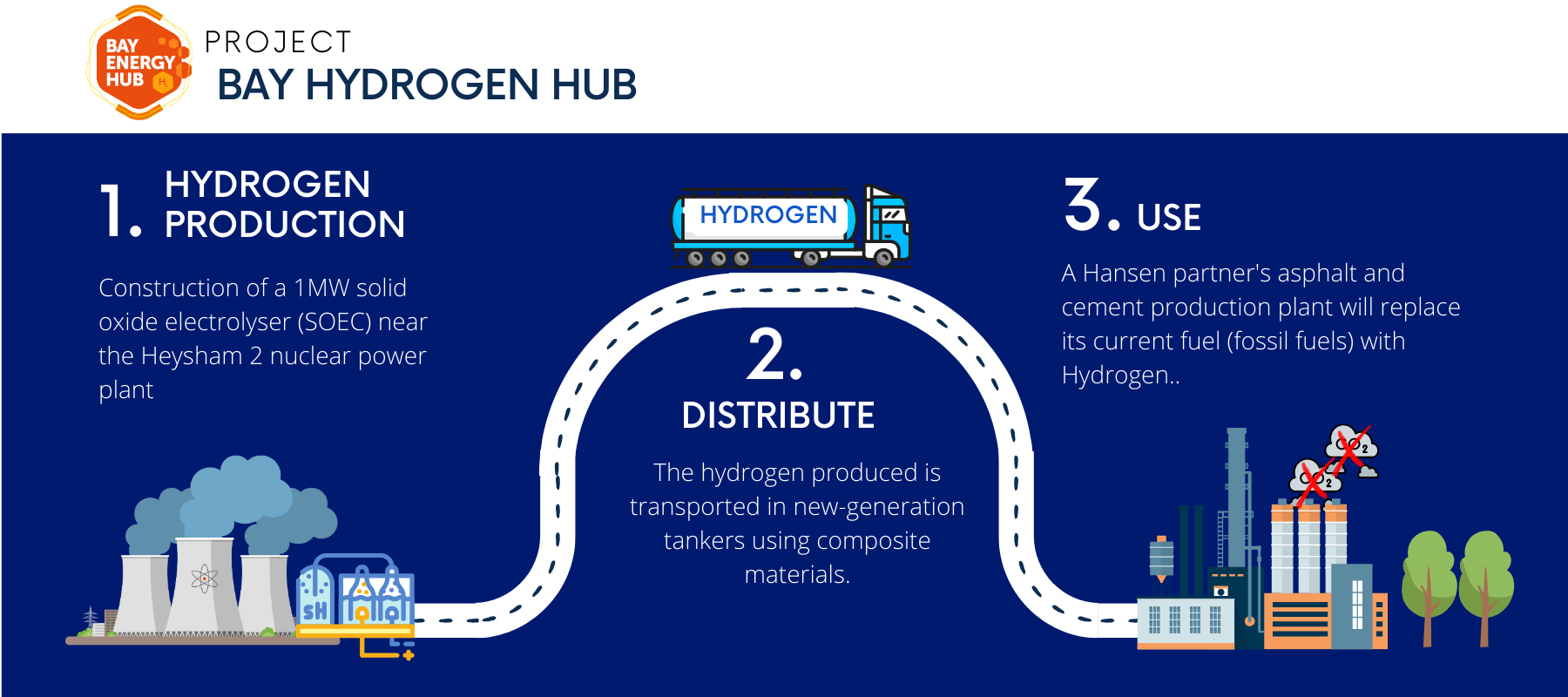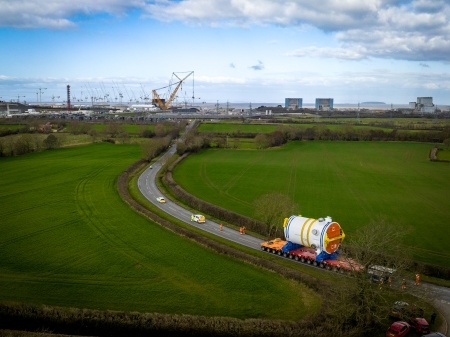
Exciting progress on hydrogen plans for Heysham 2
Earlier this week the UK government officially announced that EDF (UK) will receive £6.1M of funding for the groundbreaking Bay Hydrogen Hub project, as part of the "Industrial Hydrogen Accelerator Programme".
In partnership with EDF (Nuclear Operations and R&D), Hanson Cement, Vulcan Burners, and the National Nuclear Laboratory, this project will demonstrate the use of solid oxide electrolysis (SOEC) at an operational nuclear station, specifically Heysham, on the northwest coast of England near Lancaster. What's truly remarkable is that, using nuclear heat and electricity, SOEC could be more efficient than established electrolysis technologies!
Patrick Dupeyrat, EDF UK R&D Director said: “We are proud to announce the launch of this ground-breaking project aimed at demonstrating the potential of hydrogen production coupled with nuclear heat and electricity. Nuclear-backed Hydrogen production via solid oxide cell electrolyser (SOEC) has the potential to be more efficient and cheaper than established electrolysis technologies and could play a major role to support the decarbonisation of industry.”
Rachael Glaving, Commercial Director at EDF, said: “For decades nuclear power in the UK has provided zero-carbon electricity to the grid and helped to constrain the nation’s emissions, collectively saving more than 700m tonnes of carbon dioxide going to the atmosphere.
“But we know nuclear power can do even more to drive the nation towards decarbonisation. Our hope is that this project shows industries that are dependent on fossil fuels, as well as the nuclear sector, that by working together we can build a lower carbon future for industry and confirm the UK’s place as a global decarbonisation technology leader.”
At present, no facility in the world has used hydrogen as a fuel for asphalt production. Earlier in 2023, a feasibility study demonstrated the significant benefit the project would bring in proving how nuclear could power hydrogen electrolysis.
To help develop the project, a collaboration between Nuclear Operations, EDF R&D, Vulcan Burners, Hanson and the National Nuclear Laboratory, the Government’s Net Zero Innovation Portfolio (NZIP), which provides funding for low-carbon technologies and systems, has awarded the scheme more than £6m. This cash will be coupled with money from partners and go on technology designs, purchasing the equipment and for exploring the full costs and delivery plans.
Andrew Pyle, Technical & Safety Support Manager at Heysham 2, said: “'Nuclear power has underpinned electricity generation in this country for decades and has a major part to play in our energy future. This new technology will demonstrate the vital role nuclear power can play in decarbonising our key industries and show we can produce hydrogen efficiently and cheaply with minimal impact on our ongoing operations. And all of that is critical if we’re to rely more on nuclear to further drive net zero.”
Over the coming months, the project partners will develop the full designs for the electrolyser and scope and cost all works that will be required at Heysham 2 to take the scheme forward. Once this work is concluded, a decision will be made which could see construction, and supporting physical works, begin at the power station in early 2024.

Related articles

EDF UK R&D Net Zero Heroes: Ruth

EDF UK R&D Net Zero Heroes: Ehimen Iyamabo
